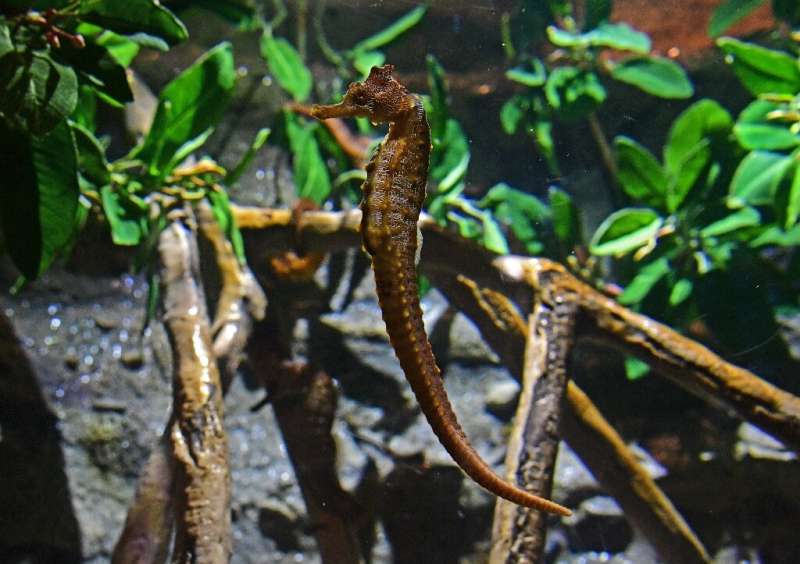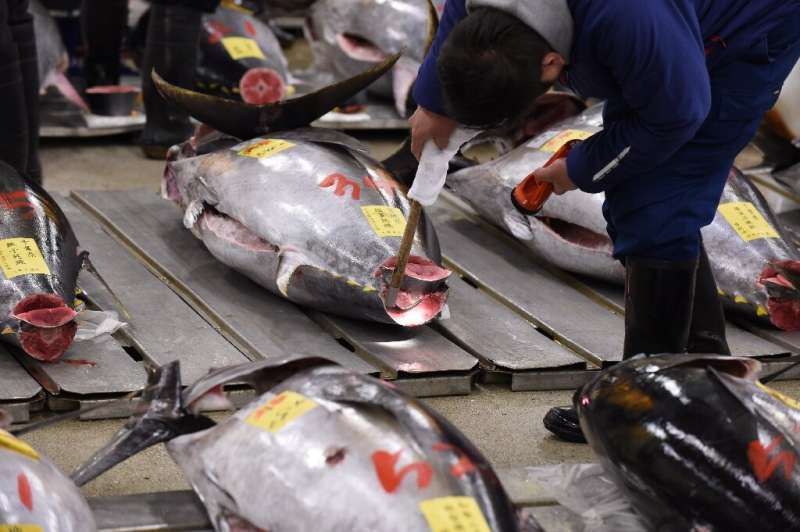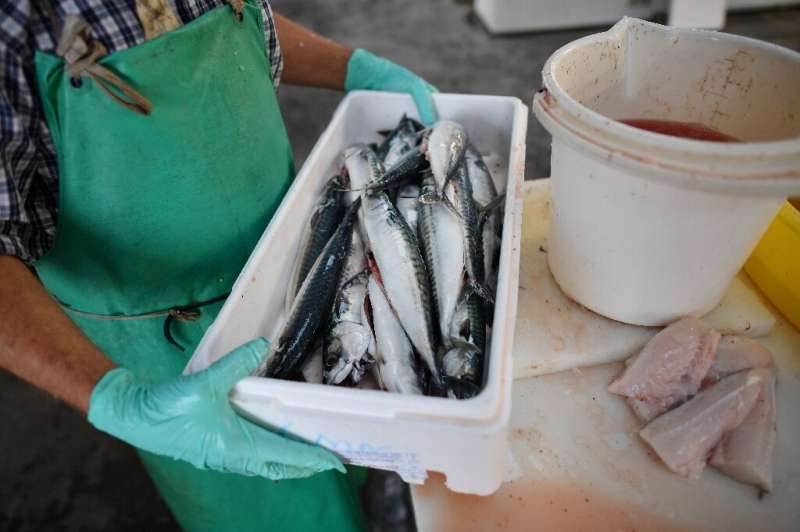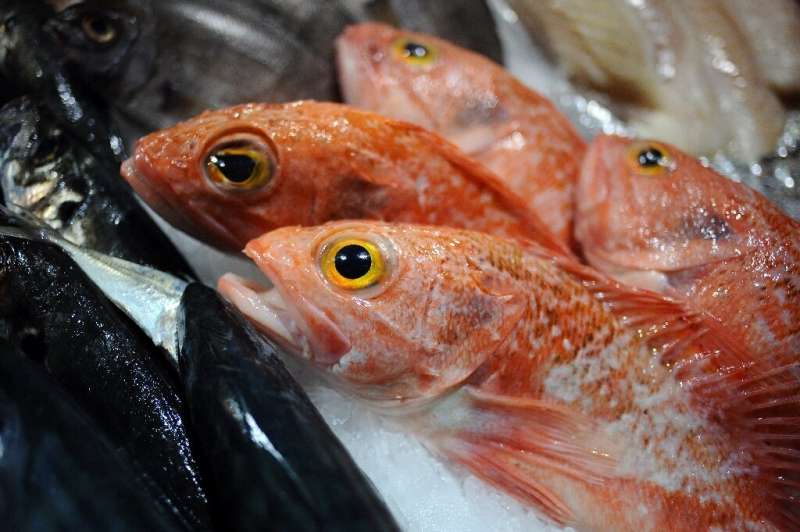Tropical fish swim into Europe's waters as common species head north

Cod, sole and plaice might be regulars on European dinner tables but as climate change heats the oceans common species are heading to cooler northern waters—with profound potential consequences for fish stocks and consumers.
Experts say bluefin tuna, seahorse and the bright triggerfish from the tropics are swimming to Europe's warming seas while fish such as cod are migrating northwards.
"We will see less of the fish we know, and we will see tropical fish arriving that we did not know (here) until now," said Clara Ulrich, a fisheries scientist and assistant director at the French Research Institute for Exploration of the Sea.
She said the bluefin tuna is returning to the North Sea and said seahorse and balistes, a tropical fish seen in hot areas, are arriving in European waters.
Ulrich explained it is not that species such as cod have disappeared from European waters but there will be less of them along the French and Spanish coasts and more of them in colder climates such as in Norway and Scotland.
"It is not that fish migrate to the North as such, but it is that fish populations in the south are becoming less and less productive and therefore their density is decreasing," she said.
"While fish from colder areas can benefit from an increase in temperature and become more productive themselves," she added.

"Fish resources are very dynamic. It's not physics, not everything happens as planned," said Manuel Barange, Director of Fisheries and Aquaculture Department at the FAO, the UN agency for agriculture and food.
"There will be changes from year to year, but we do expect that there's (a) shift of species, of warmer water species towards the north," he added.
Fears over 'fish wars'
This may require adaptation on the part of consumers, who he said should make the most of the new species that become available.
"Anchovies arrived in the UK and I've seen them in the UK markets, they are incredibly cheap, because nobody buys them, so we need to start educating the public to start eating the fish that they have rather than just simply the fish that they used to have and they like to eat," Barange said.
He said the same goes for red mullet, which is usually found in the Mediterranean but it is barely eaten in the UK even when it is sold cheaply.

Overfishing is also to blame for depleting fish numbers and the destruction of underwater habitat.
In July, the European Commission announced a five month ban on fishing cod, the staple of Britain's fish and chips, in most of the Baltic sea in response to an impending stock collapse.
"The main cause of the collapse of commercial populations is overfishing," said Francois Chartier who heads the Greenpeace oceans campaign in France.
He said it is urgent that ocean food chains are maintained so that their role as a "carbon pump" is not jeopardized.
"Like forests, it absorbs CO2, it produces oxygen, it's photosynthesis, if you have a food chain in the ocean that is unstructured, you will have much more difficulty for the oceans to ensure that it functions in the climate system," he warned.
The other issue for fisheries are quotas between countries as species migrate north.

This was seen during the years-long "mackerel and herring wars" fought between the EU and Norway against Iceland and the Faroe Islands.
The island territory and Iceland sparked a backlash after unilaterally increasing fishing quotas in 2010 after the fish migrated to its waters due to rising sea temperatures.
The FAO's Barange warned if management systems in some countries are not very effective now, they will be even less so once new species arrive.
He said that some countries will have to learn to "work with neighbouring countries".
"The fish see no boundaries, no borders and have no passport, so you need to start getting institutions that are capable of dealing with things that move from one point to another," he added.
© 2019 AFP





















